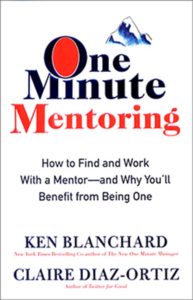At this point, we all know the sad Weiner saga.
Thus, it was no surprise to read the CNN News Alert this morning letting me know that “embattled” Democratic New York Rep. Anthony Weiner will officially resign his seat in the House of Representatives. In a shocking (for no one) turn of events, his two-week leave of absence to “focus on becoming a better husband and healthier person” will be indefinitely extended.
I can’t help but focus on solutions in life, and I regularly ask “What could have been done better?” in any given situation. I turn my attention to Weiner with this same question: Could this dramatic loss to US government have been averted? Could Weiner have saved his coveted seat and continued to entertain his lady friends ad infinitum?
My father says yes.
What Weiner Should Have Done: Admit His Twitter Addiction, and Ask for Help
What if Weiner had taken a cue from any number on down-on-their-luck celebs and had checked himself into rehab earlier in the process? What if, ten days ago, Weiner had simply said, in a teary press conference: “I acknowledge the truth. I have a Twitter addiction.”
Yes. A Twitter addiction.
If you’ve been following Weiner’s story closely enough, you know that he lacks a certain flair for alcohol, drugs, or mental collapse. In the face of this (suggests my father) he should have done the next most logical thing: declare a Twitter addiction and ask for help.
Although the specifics of a Twitter addiction remain nebulous (after all, what makes Weiner a Twitter addict, and not you or me?), the one thing we can say for certain is that Weiner’s addiction went to the bad place when he exhibited that he not only had an addiction, but that he had no idea what he was doing on the platform.
Truly, some basic Twitter training could have helped Weiner to continue sending “special art” to his unsuspecting maidens while still holding one of the most coveted spots in United States government for many years to come.
Simple Twitter best practices (or, I might suggest, my T.W.E.E.T. framework as laid out in Twitter for Good) could have helped him understand the subtle (for Weiner) differences between direct messages and @replies. A workshop on mobile tweeting would also have helped Weiner manage the stress of Tweeting on the fly — and ensuring he’s pressing all the correct buttons. Perhaps a perusal of such Twitter friendly websites as TwiTip could have aided in his efforts to maintain his artistic passions and keep from losing his job.
Ultimately, the road Weiner should have traveled is clear. Weiner, in being the first high-profile individual to check himself into a Happy Valley like establishment for a Twitter addiction, could have set an example for us all.
I’m sure I’m not be the only one shedding a tear for this unfortunate misstep.





Ultimately, the road Weiner should have traveled is clear. Weiner, in being the first high-profile individual to check himself into a Happy Valley like establishment for a Twitter addiction, could have set an example for us all.